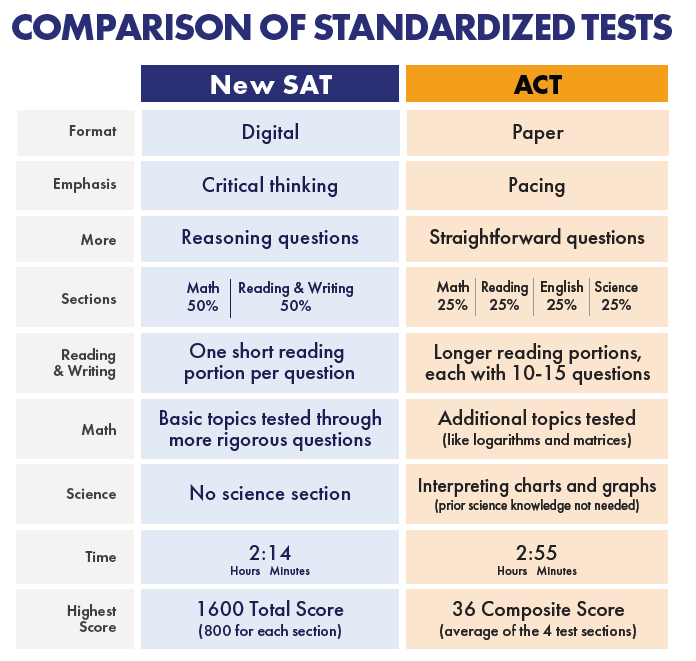The SAT is changing in 2024.
What does this mean?
And should your child take the New SAT or the ACT?
Let’s compare some big differences between the two exams:
1. The new SAT is digital, while the ACT will remain a paper and pencil test. In addition, the new SAT is a shorter test than the ACT.
Hot Tip: The best way to practice for these exams is to take officially released exams. After taking a practice exam, students should spend time reviewing their mistakes.
2. The new SAT emphasizes critical thinking and reasoning questions that may take longer to answer. On the ACT, questions are more straightforward but there are a lot of questions in each section.
Hot Tip: Pacing is an important part of the ACT. If a student is a slower test taker, it’s advisable to determine if the ACT would be the preferred test and whether the student could pick up speed while maintaining accuracy.
3. The new SAT is an adaptive test – this means how a student does on the first part of the test determines the difficulty of questions on the second part of the test. For example, a student’s performance on part one of the math section, would determine if the student gets an “easier” or “harder” part two math section.
Hot Tip: It’s important to stay calm and focused on part one of the SAT so a student could perform well and receive the “harder” part two – this would give the student a chance to score higher on the test.
4. A big difference is that 50% of the SAT is math. Only 25% of the ACT is math. The ACT has a science section that is 25% of the test.
Hot Tip: Students don’t need prior science knowledge to do well on the ACT science section! It’s basically a glorified reading section where students interpret information from charts and graphs.
Below is a simple chart to compare/contrast these two exams.
So which test should your child take?
It’s not obvious for many students which test is a better match.
Therefore, it’s beneficial for your child to take diagnostic exams.
We offer diagnostic exams and provide an evaluation about how to raise your child’s score.
Contact us to get started.
You can also call us 212-706-1044 or email us.

